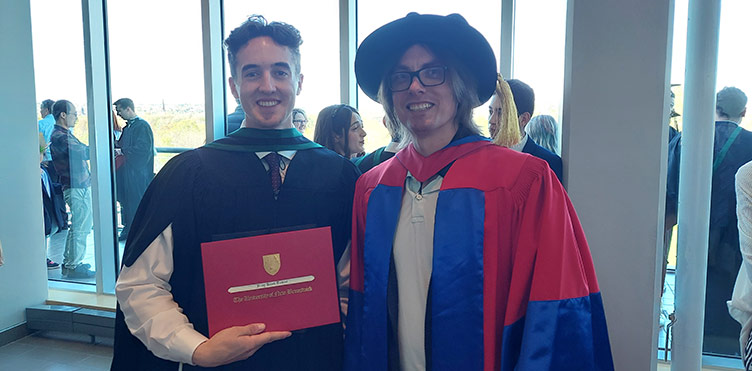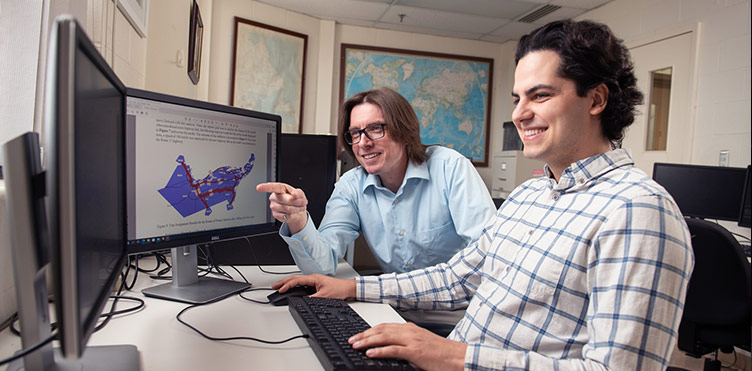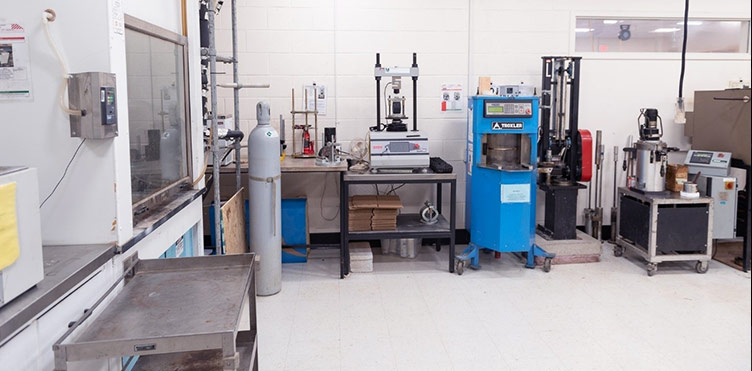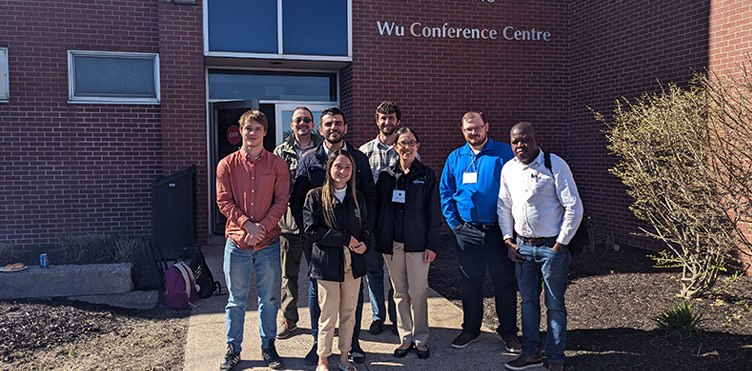Programs of study

Programs of study are available leading to the degrees of Master of Science in Engineering (MScE), Master of Engineering (MEng), and Doctor of Philosophy (PhD). Requirements for these degree programs are described by the Department of Civil Engineering. To apply for graduate studies with the University of New Brunswick Transportation Group, see the School of Graduate Studies.
The programs provide students with the maximum level of flexibility to tailor their studies in consultation with their supervisor or program advisor. Programs are intended to be as broadly based as possible with opportunities for interdisciplinary problem solving. Courses reflect the issues and analytic methods that relate to the various modes of transport. Students are encouraged to pursue courses offered by other faculties in transportation related disciplines.
While the program is based in the Department of Civil Engineering, students from a variety of backgrounds regularly enroll and succeed in the program. Students with backgrounds in Economics, Business, Commerce and Mathematics have successfully completed the program. Most full-time students will be enrolled in an MScE program which will be completed over a two-year period.
Course requirements are consistent with those described by the UNB School of Graduate Studies.
Courses
The selection of courses will be decided by the student in close consultation with their supervisor or the program advisor. Each student will be expected to select courses which permit the development of skills and knowledge to meet the student's interests and requirements. Courses can be selected from offerings from other graduate academic units and certain undergraduate offerings.
A wide range of courses are available for students to choose from. Topics include: pavement, transportation planning, asset management, simulation, road safety, intelligent transportation systems, among others.
Note: CE 6283 and ECON6803 are considered Core Courses for all programs of study. Not all courses are available in any one year.
You may elect to take other select courses offered in Civil Engineering or by other academic units subject to Supervisor approval.
Facilities

The UNB Transportation Group enjoys the benefit of excellent library and computing facilities. The Group has its own dedicated computer laboratory equipped with up-to-date facilities and a wide range of current hardware and software, including various transportation related software packages.
The Engineering Library contains innumerable transportation related journals, textbooks, reports and papers. The UNB Libraries website offers search engines for finding library materials, as well as access to many online journals, articles, and other electronic information sources.
We also have a state-of-the-art asphalt materials lab serving the academic and research needs of the university and industry.

The new UNB Asphalt Lab
Industry liaison
One of the traditional strengths of the UNB program has been the maintenance of close liaison with the transportation community. This is accomplished through a variety of mechanisms including:
- Organization and sponsorship of seminars/symposia on transportation issues.
- Participation in committees/boards of transportation organizations such as the Canadian Transportation Research Forum, the Institute of Transportation Engineers, the Intelligent Transportation Systems Society of Canada (ITS Canada), the Canadian Society for Civil Engineering, and the Transportation Research Board.
- Organization and delivery of continuing education workshops for transportation practitioners.
Several government and private sector organizations have provided excellent student projects over the years. The projects enable students to gain experience in investigating and resolving complex, practical transportation issues/problems. These projects are typically done as a course project.

UNB Transportation Group students with industry at the New Brunswick Asphalt User Producer Group Meeting
Students work in teams over a semester. They experience the benefits of teamwork and improve their skills in project planning, problem definition, data collection, data analysis, development and evaluation of alternatives as well as preparation of action plans. Upon completion of the project, students are required to prepare a final report and formal presentation of their work to executives of the organization which provided the project.
